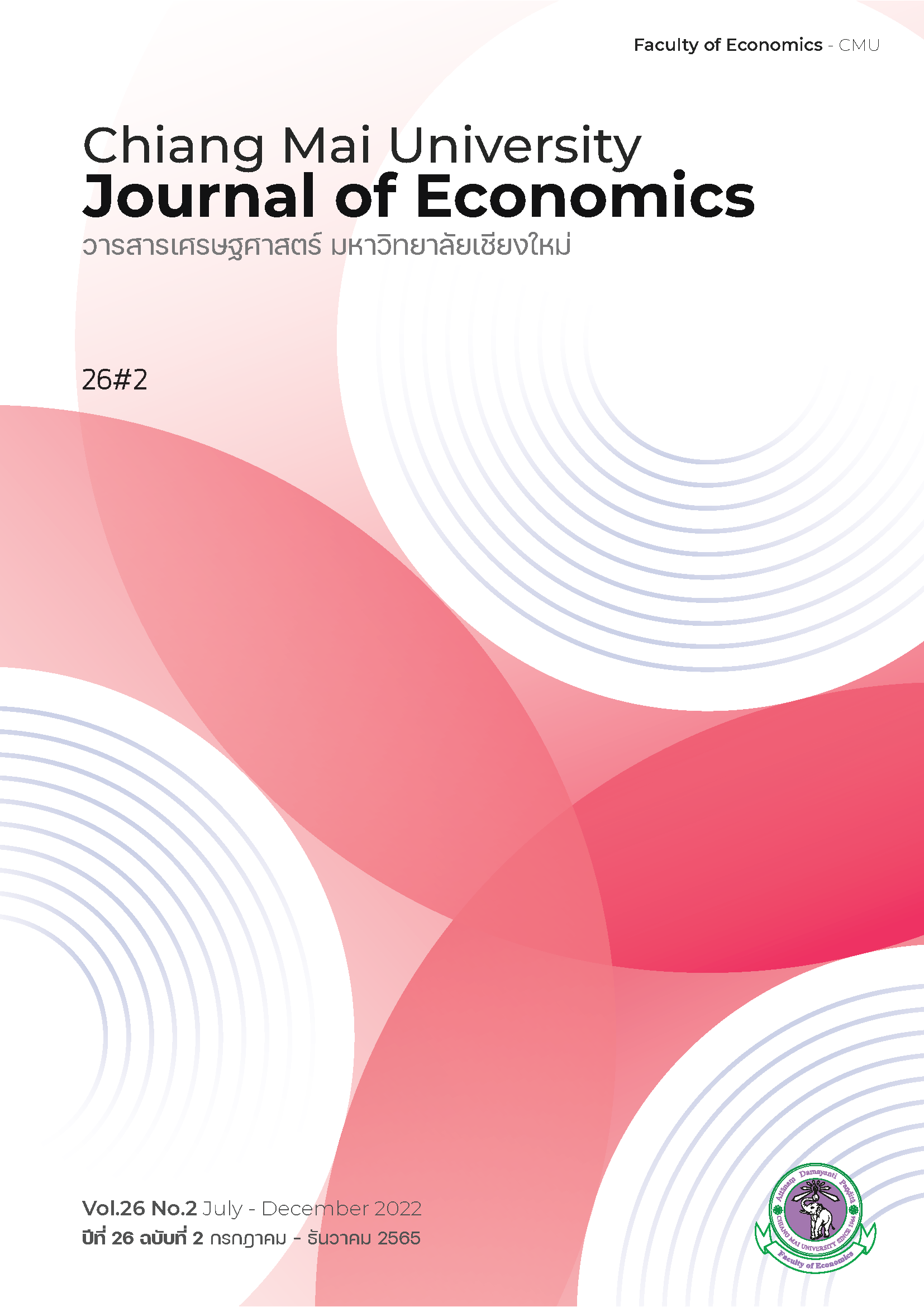Factors that affect generation y customer's decision to use food delivery service in Bangkok
Keywords:
Consumer Behavior, Generation Y, COVID-19, Food Delivery ApplicationAbstract
At the moment, there is a progressive growth of technology in terms of information technology and Internet communication through mobile phone and other social media platforms, which has changed the lifestyles of people who are required to alter their way of life today, for instance, when considering the lifestyle of Bangkokians, who want convenience, quickness, and time in order to survive in a congested city. When they go out to get food, they must lose time navigating through traffic jams. And if the restaurant is really popular, expect to wait in line to dine. As a result, meal delivery has been ordered to accommodate the demands and convenience of a greater number of individuals. As a consequence, customers' consuming patterns vary. The objectives of this research were to examine the factors affecting consumers' decision to use food delivery applications in the digital economy era; to investigate consumers' behavior when deciding to use the application service; to analyze the competitive potential of food delivery businesses; and to examine the behavior of consumers who use food delivery applications during the Covid-19 pandemic, to determine whether their usage behavior has changed from the original. Five apps were studied in this study: Line Man, Grab, Food Panda, Gojek, and Robinhood. Three criteria were considered in the study: 1) demographics, 2) application limitations, and 3) marketing. The data gathering process includes online surveys sent to 416 customers in Bangkok who were members of the generation Y group (24-41 years old). The binary logit model was used to analyze data in order to determine the factors that influence decision making in food delivery apps. The findings indicated that gender, educational level, Covid-19 status, number of riders and merchants linked with the program, shipping prices, discount promotions, and online advertising all had a statistically significant effect on food shopping choices made via the application.
References
ETDA. (2021). ETDA reveals Gen-Y people order food online the most, with over 40% ordering because of fears of COVID-19. Retrieved from https://www.etda.or.th/th/https/www-etda-or-th/th/newsevents/pr-news/Online-Food-Delivery-Survey-2020.aspx. (in Thai)
Hicks, W. (2021). Grab leading in food delivery. Retrieved from
https://www.bangkokpost.com/business/2051295/grab-leading-in-food-delivery
Just222. (2020). After Covid-19, food delivery business expands in intense competition. marketeer. Retrieved from https://marketeeronline.co/archives/180441. (in Thai)
Kasikornresearch. (2020). After Covid-19 Food Delivery business expands in intense competition Platform service providers move into Super Application. Retrieved from https://www.kasikornresearch.com/th/analysis/k-econ/business/Pages/z3128-Food-Delivery.aspx. (in Thai)
Manakitsomboon, H. (2021). Leading food delivery services based on market share Thailand 2020. Retrieved from https://www.statista.com/statistics/1247775/thailand-leading-food-delivery-services-by-market-share/
Matemate. (2021). Open a case study Robinhood offers 88-day food delivery with business expansion plans in 2021. Retrieved from https://brandinside.asia/robinhood-food-delivery-in-88-days/. (in Thai)
Areepermporn, P. (2020). Business of 'Thai food delivery' when the big issue in delicious dishes is to make money too. Retrieved from https://thestandard.co/thai-food-delivery-business/. (in Thai)
Phoonphongphiphat, A. (2021). Thai food delivery sector still hungry despite business boom. Retrieved from https://asia.nikkei.com/Business/Food-Beverage/Thai-food-delivery-sector-still-hungry-despite-business-boom
PPTV Online. (2020). Open the statistics of using the Internet for Thai people in 2020. Retrieved from https://www.pptvhd36.com/news/%E0%B8%AA%E0%B8%B1%E0%B8%87%E0%B8%84%E0%B8%A1/142614. (in Thai)
SCB. (2021). Robinhood Food Delivery application from SCB group that wants to return profits to society. Retrieved from https://www.scb.co.th/th/personal-banking/stories/business-maker/robinhood.html. (in Thai)
Sirikeratikul, S. (2020). Thailand Online Food Delivery Market. Retrieved from https://doksi.net/en/get.php?lid=30619&fbclid=IwAR1MoCDuumpleSSpnxfagRk_PaVxZuWBNaqJcJ2XdoOFnoEbB6EuGUVl5D4
Suwannatat, P. (2020). Open the battle for Thai food delivery industry: a competition that is not just a promotion for free delivery. Retrieved from https://brandinside.asia/food-delivery-competition-in-thailand/. (in Thai)
Thaihealth. (2020). Covid boosts online food orders Concerned about the health of Thai people who are sick with NCDs. Retrieved from https://www.posttoday.com/life/healthy/630328?fbclid=IwAR1PGAREmmbkxRH7oDNrahlPLEX4vlE-MeZn3nSAoKuDYWY799RYsnAKzNs. (in Thai)
Whatevermarketing. (2021). Food Delivery How to make it popular. Retrieved from https://www.blockdit.com/posts/5e661a78cc7cb90cadf965b9. (in Thai)
Downloads
Published
Issue
Section
License
Copyright (c) 2022 CHIANG MAI UNIVERSITY JOURNAL OF ECONOMICS

This work is licensed under a Creative Commons Attribution-NonCommercial-NoDerivatives 4.0 International License.
All opinions and contents in the CMJE are the responsibility of the author(s). Chiang Mai University Journal of Economics reserves the copyright for all published materials. Papers may not be reproduced in any form without the written permission from Chiang Mai University Journal of Economics.






